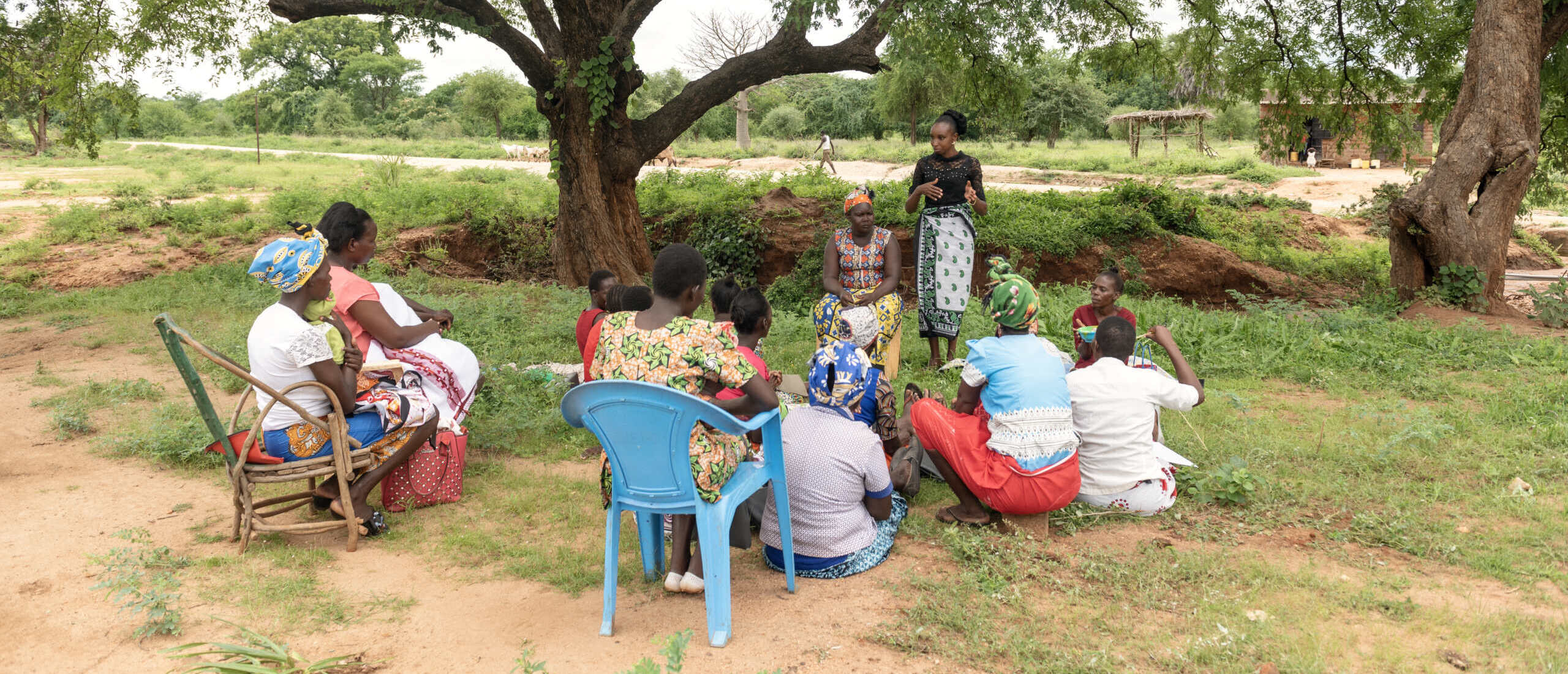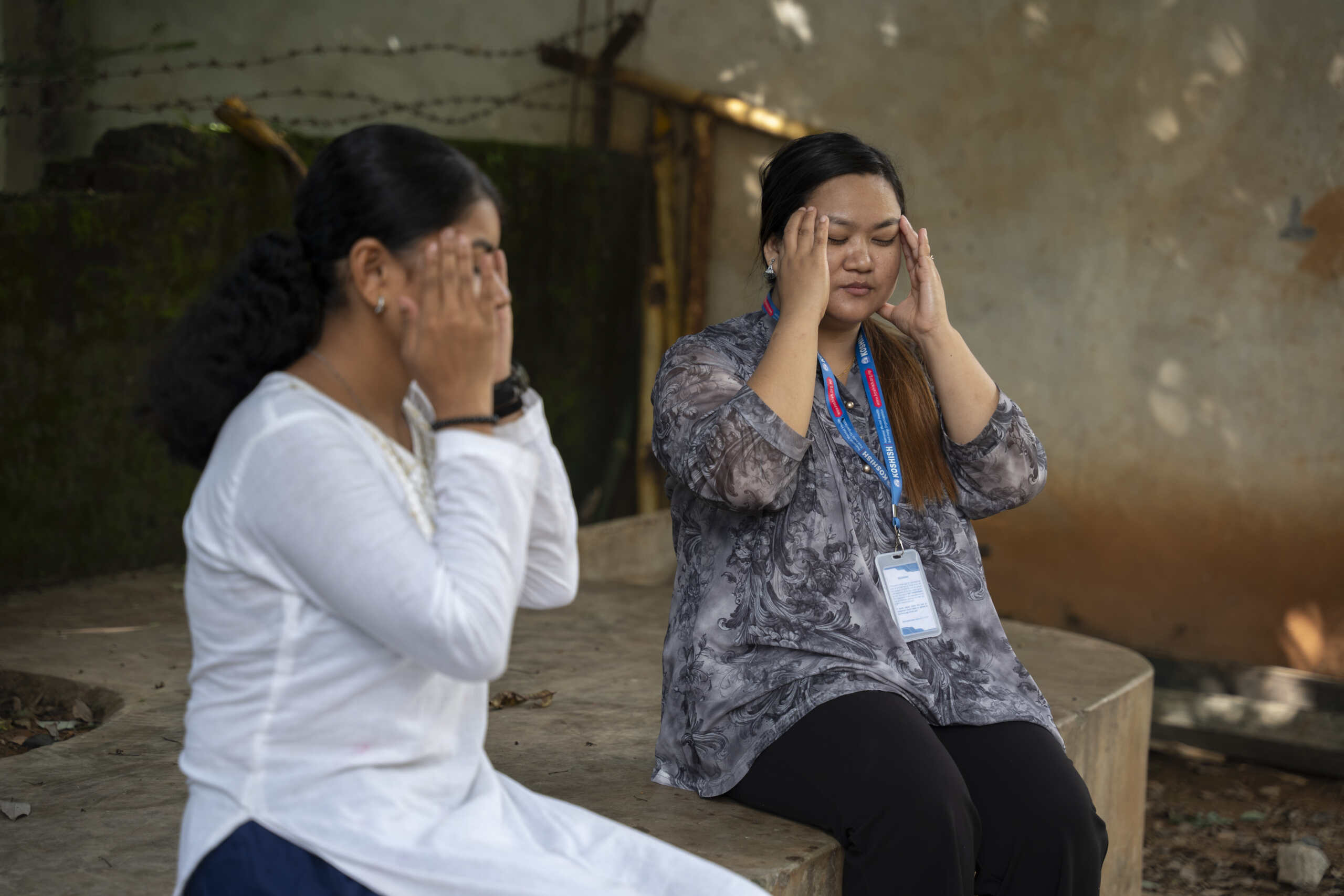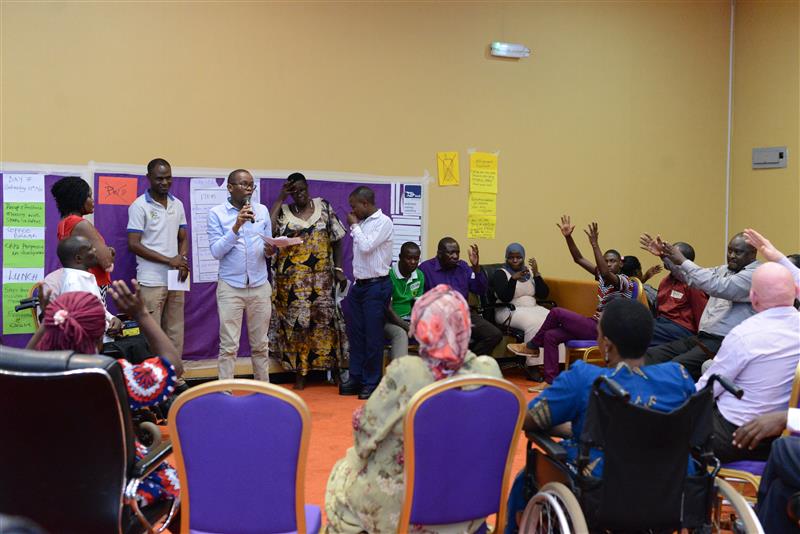Strengthening Community Based Inclusive Development
Blog | September 13, 2022
This blog on Community Based Inclusive Development (CBID) relates to our Annual Report 2021.
Community Based Inclusive Development (CBID) is an important area for CBM Global as it crosses many sectors. In 2021, CBM Global reviewed its CBID approach – framed by the CBID matrix and guidelines – to ensure that the foundations (or preconditions) for inclusion were in place in community-based programming. This review stemmed from a challenge given to CBM Global by its strategic partners, Organisations of Persons with Disabilities (OPDs). Drawn from the various CRPD and disability rights approaches, the foundations for inclusion include empowerment, self-advocacy, community awareness raising, accessibility, and referral pathways. The approach supports CBM Global’s commitment to localisation, connecting people with disabilities with each other, their families, the wider community and with decision makers – all undertaken in close partnership with OPDs and implementing partners, and in alignment with the Convention on the Rights of Persons with Disabilities.
In 2021, CBID project participants benefited from health, education, livelihoods, social and empowerment activities. The CBID approach lends itself well to flexible response, and the majority of projects implemented activities in response to the COVID-19 pandemic.
Key outcomes achieved throughout the year included:
- Improved community and government attitudes and responsiveness to people with disabilities. This was especially important during the COVID-19 response, where there was strong local advocacy to make sure that people with disabilities had access to government health messaging, vaccinations, and social support during lockdowns.
- Disability inclusion training for staff in government institutions, including healthcare workers, which was vital during the pandemic lockdown.
- Programmes that supported more children with disabilities to enrol in school, emphasising the value of education to parents and strengthening informal teaching hubs to support out of school children, particularly girls. Accessibility assessments of school systems and teacher training to help reduce discriminatory attitudes and improve accessibility.
- Providing leadership training to members of OPDs and Self-Help Groups (SHGs), both women and men, to take up leadership opportunities, and advocate for the inclusion of people with disabilities in social support, political and governance systems.
- Supporting people with disabilities and their caregivers to improve their economic security and access small loans to start small businesses. Forming and developing Village Saving and Loan (VSLA) groups built self-confidence among group members and supported their long-term functioning after the completion of the project. SHGs created before the pandemic to establish collective livelihood resilience for people with disabilities proved to be an important source of mutual support throughout the pandemic.
- Preparing and disseminating accessible public health information regarding virus transmission prevention so that people with disabilities felt informed and better able to protect themselves against COVID-19. Messaging highlighted the increased risks for people with disabilities of contracting COVID-19 and the importance of safe and accessible services.
- Continuation of crucial home-based rehabilitation, access to health services and financial security was achieved for people with disabilities. Hygiene and sanitation kits were distributed to those most vulnerable and livelihood gaps provided essential support to individuals and families whose livelihoods were impacted by COVID-19.
- Training workshops and community simulation exercises to promote inclusive Disaster Risk Reduction, strengthening disaster preparedness and response.
Partnering for impact
Bolivia
In Bolivia municipal employees were trained and sensitised on the topic of disability inclusion. Local development plans included concrete CBID measures; financed and implemented locally. These measures were introduced through the active involvement of organisations/networks of people with disabilities, which also accompanied the implementation.
“Thanks to the organization of municipal and departmental forums with those who were candidates for mayors and governors, people with disabilities were better considered in the government plans and proposals of the candidates in the areas of intervention and the problems posed by inclusion were better visible in the electoral proposals.” – Head of Organizaciones de personas con discapacidad
Bangladesh
A recent evaluation showed how CBM Global’s work with Self-Help Groups (SHGs) in a CBID project in Bangladesh was effective in influencing local government bodies and the private sector to promote disability inclusion in policies and services. A 40% quota for women with disabilities in SHGs opened up opportunities for young women to build their leadership skills and knowledge of disability rights. What has emerged is a strong team of women, training and mobilising other women with disabilities to claim their rights, access services, and gain employment.
Khaleda contracted typhoid as a child and a lack of medical treatment led to an ongoing physical disability. She married at a young age and was left in poverty raising two children. Khaleda got involved in a SHG and now, with skills and leadership training, fights for the rights of people with disabilities in her community.
“I feel very shy when people call me a leader. But to be honest, within me I also feel a spark of happiness for that. I am proud of what I am today,” says Khaleda.
CBM Australia acknowledges the support of the Australian Government through the Australian NGO Cooperation Program (ANCP) for CBID projects.
Nigeria
More than 400 women with disabilities from the Village Saving and Loan (VSLA) groups have now participated in vocational training, involving nearly 100 courses and individual placements, covering subjects from catering to computers to manufacture of soap and hand sanitiser. DRAC organised the first ever trade fair in Abuja specifically for women with disabilities so that the vocational training graduates could start to market and sell their products.
Leadership programme training sessions were delivered and the participants were assigned to mentors. Our 25 male inclusion champions reached over 700 men in their communities with sessions on gender and disability inclusion. We held a training workshop and a follow-up meeting with education stakeholders on inclusive education.[AW2]
Madagascar
By conducting inclusive disaster risk reduction (IDRR) training workshops in Madagascar, as well as a simulation exercise, the volunteers and committee at community level were able to improve and initiate their awareness-raising activity for the community on disaster preparedness and response. Knowledge of the community and beneficiary households, especially households of people with disabilities in terms of IDRR, is expected to improve. Damage caused by potential cyclone events will be reduced accordingly. A total of 1,577 people were sensitised and improved their resilience to disasters, of which 502 were people with disabilities
Burkina Faso
In Burkina Faso, renovations and equipment resulted in improved access to primary health care. In addition, various medical personnel, such as physiotherapists and orthopaedic technicians, were trained in disability rights and early childhood screening for disabilities, enabling the provision of high-quality services that are accessible to the entire population.
“Thanks to an accessibility audit and the renovation of our administration building and the sanitary installations, we can now also welcome people with limited mobility.” – Mayor of Garango, Burkina Faso
https://cbm-global.org/blog/strengthening-community-based-inclusive-development
Related News

What our partners told us and how it shapes our future
One of our strategic priorities as a Federation is to shift power in partnerships....

Breaking Stigma, Building Hope: Suicide Prevention in Nepal
After losing her young daughter to suicide, Maya developed a mental health condition while...

Accessibility, reasonable accommodation, and budgeting for inclusion
Budgeting for inclusion, accessibility, and reasonable accommodation must be...
